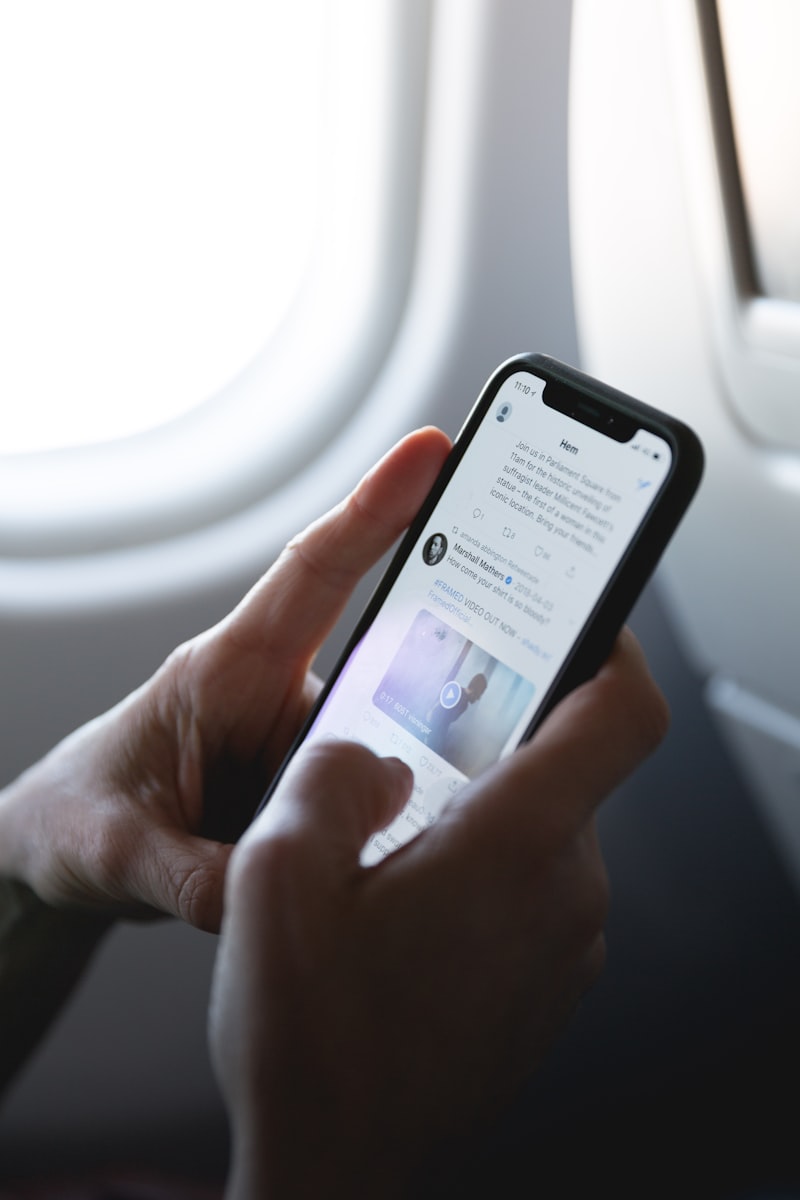How Are Mobile Devices Changing the Fitness Industry?
Moreover, mobile devices have made personalization a priority in fitness. Imagine having a virtual coach who knows your strengths, weaknesses, and goals inside out. With advanced algorithms and AI integration, fitness apps can analyze your data in real-time and provide customized feedback and recommendations. It’s like having a personal trainer in your pocket, available 24/7.
But it’s not just about workouts. Mobile devices are also changing how we stay motivated and accountable. Social features within fitness apps allow users to share their progress, compete with friends, and join communities of like-minded individuals. It’s the digital equivalent of having a workout buddy cheering you on, pushing you to go that extra mile.
Furthermore, mobile technology has turned nutrition tracking into a breeze. From calorie counting to meal planning, there’s an app for every dietary preference and goal. Whether you’re aiming to lose weight, gain muscle, or simply eat healthier, mobile devices provide the tools and resources to make informed choices about your diet.
Fit Tech Revolution: How Mobile Devices Are Redefining Fitness Training
Imagine having a personal trainer, nutritionist, and workout partner all in your pocket. That’s the power of Fit Tech. From smartwatches that monitor heart rate and sleep patterns to fitness apps that offer customized workout routines, mobile devices are redefining how we approach fitness. Whether you’re running in the park or sweating it out at home, these technologies provide real-time feedback and motivation, making every workout session more efficient and effective.
One of the key benefits of Fit Tech is its accessibility. No longer bound to gym schedules or pricey memberships, anyone with a smartphone can access a wealth of fitness resources anytime, anywhere. Beginners can learn proper exercise techniques through instructional videos, while seasoned athletes can challenge themselves with advanced training programs. The versatility of mobile devices allows users to tailor their fitness journey to their specific goals and preferences.
Moreover, Fit Tech fosters accountability and community. Social features within fitness apps enable users to connect with like-minded individuals, share achievements, and participate in virtual challenges. This social support network not only boosts motivation but also creates a sense of camaraderie among users striving towards similar health goals.
As the Fit Tech revolution continues to unfold, the boundaries of what’s possible in fitness training are constantly expanding. Innovations such as augmented reality workouts and AI-powered coaching are paving the way for even more personalized and immersive fitness experiences. With mobile devices at the forefront, the future of fitness is more accessible, engaging, and transformative than ever before.
From Couch to Cardio: The Impact of Mobile Devices on Fitness Trends
Picture this: you’re lounging on your couch, scrolling through social media or catching up on your favorite show. Suddenly, a notification pops up on your phone—a reminder from your fitness app nudging you to get moving. It’s not just a reminder; it’s a personal coach, tracking your steps, monitoring your heart rate, and even guiding you through workouts tailored to your fitness level.
These mobile marvels have democratized fitness, making it accessible to anyone with a smartphone and a desire to improve their health. Whether you’re into yoga, running, or HIIT sessions, there’s an app for that—offering virtual classes, personalized training plans, and real-time feedback right at your fingertips.
But it’s not just about convenience. Mobile devices have also gamified fitness, turning daily exercise into a rewarding challenge. From earning badges for hitting milestones to competing with friends on leaderboards, these gamification elements add a layer of fun and motivation, keeping users engaged and committed to their fitness goals.
Moreover, mobile technology has bridged the gap between workouts and wellness. Health tracking apps now monitor everything from sleep patterns to nutrition intake, providing users with a comprehensive view of their overall health. Armed with this data, individuals can make informed decisions, adjust their routines, and stay on track towards a healthier lifestyle.
Fitness at Your Fingertips: The Role of Mobile Apps in Personal Training
Imagine having a personal trainer in your pocket, available anytime, anywhere. That’s the promise of mobile fitness apps. Whether you’re at home, traveling, or in a busy gym, these apps provide tailored workout plans designed to meet your specific needs and goals. From strength training to yoga, cardio to meditation, there’s an app for every fitness enthusiast.
What sets these apps apart is their ability to personalize the fitness experience. Through innovative features like progress tracking, real-time feedback, and interactive tutorials, users can monitor their workouts and adjust their routines for optimal results. It’s like having a virtual coach who not only motivates you but also ensures you’re making the most out of every session.
Moreover, mobile apps make fitness more inclusive and accessible. They cater to all fitness levels, from beginners to seasoned athletes, offering a variety of exercises and routines that can be done with minimal equipment. This flexibility allows users to stay committed to their fitness journey without being tied to a specific location or schedule.
Beyond workouts, these apps often include nutrition planning tools, ensuring users maintain a balanced diet that complements their exercise regimen. They educate users about healthy eating habits and provide meal plans tailored to individual dietary preferences and goals.
In essence, mobile fitness apps have revolutionized personal training by democratizing access to professional guidance and resources. They empower individuals to take charge of their health in a way that is flexible, affordable, and engaging. As the fitness industry continues to embrace digital innovation, these apps are set to play an increasingly vital role in helping people live healthier, more active lives.
Breaking Barriers: How Mobile Devices Are Making Fitness More Accessible
One of the most significant ways mobile devices are enhancing accessibility to fitness is through the proliferation of fitness apps. Whether you’re into yoga, running, weightlifting, or simply tracking your daily steps, there’s an app tailored just for you. These apps act as personalized trainers, guiding users through workouts, providing motivational tips, and even tracking progress over time. With just a few taps on your smartphone, you can access a wealth of fitness resources that were once confined to gyms or specialized classes.

Another game-changer is the integration of wearable fitness trackers with mobile devices. These smart gadgets monitor everything from heart rate and calories burned to sleep patterns and stress levels, providing real-time feedback that empowers users to make informed decisions about their health. By syncing seamlessly with mobile apps, these devices turn everyday activities into opportunities for fitness and wellness, encouraging users to stay active throughout the day.

Track, Train, Transform: The Evolution of Fitness with Mobile Technology
Imagine a world where your smartphone isn’t just a device, but a personal trainer, nutritionist, and motivator all rolled into one. Welcome to the evolution of fitness with mobile technology. From counting steps to analyzing sleep patterns, mobile apps have revolutionized how we track our fitness goals. It’s not just about monitoring anymore; it’s about transforming our health habits.
Tracking your progress is no longer confined to cumbersome logs or diaries. With mobile apps like Fitbit and MyFitnessPal, you can effortlessly monitor every aspect of your fitness journey. They track your steps, calories burned, and even heart rate, providing real-time feedback that motivates you to push harder. It’s like having a personal coach in your pocket, cheering you on every step of the way.
Training has also seen a significant shift. Mobile apps offer personalized workout routines based on your fitness level and goals. Whether you’re into yoga, HIIT, or marathon training, there’s an app that caters to your needs. These apps not only demonstrate exercises but also correct your form and suggest modifications, ensuring you get the most out of every session.
Transformation is where mobile technology truly shines. Beyond physical activity, apps now focus on holistic wellness. They offer meal planning, hydration reminders, and even mental health exercises like mindfulness and meditation. It’s about creating sustainable lifestyle changes that go beyond the gym.
Mobile technology has transformed fitness from a passive activity into an interactive, personalized experience. It’s no longer just about hitting the gym; it’s about integrating healthy choices seamlessly into daily life. As technology continues to evolve, so too will our approach to fitness, making health and wellness more accessible and achievable for everyone.

